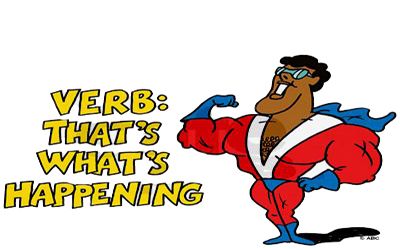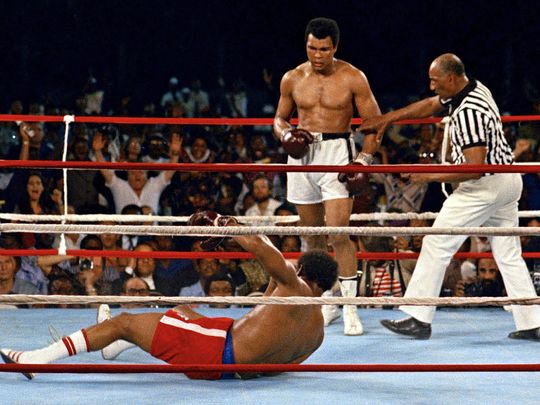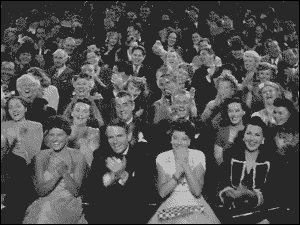Artists vs. Craftspeople – Nonprofit Arts Organizations Require the Former to Act as the Latter
Artists produce work from their creative souls, nurtured by a series of cultural, environmental, and psychological motivations. They create “a hat,” as Stephen Sondheim once wrote, “where there never was a hat.” Talented artists create from their current state of mind, without boundary.
Craftspeople produce work to fill a need. They possess a series of cultural, environmental, and psychological motivations which channel into art that produces a desired impact. Craftspeople create hats because they’re the best answer to a question.
All craftspeople are artists at their core. Many artists have no capacity to become craftspeople.
Nonprofit arts organizations require craftspeople. If the organization is more important than any artist, and the mission is more important than the organization, then employees on the organizational chart need to be, by definition, craftspeople divining an impact, not artists divining inspiration.
Nonprofit Arts Organizations Without Flexibility Present a Disconnect When It Really Matters
On September 12, 2001, we issued an internal memo at our nonprofit arts organization. We proffered the notion that standing by our programming and “moving forward” was the best way to fight back.
We were wrong. Putting on blinkers never helps.
On June 12, 2016, after one attack in Orlando and a foiled one in Santa Monica – key nonprofit arts organizations are right now readying memos rationalizing the same advice.
Move forward. That’ll show ‘em.
At what tipping point do we scrap activities to reflect the damage inflicted on people? Why must we wait for a year to see the first artistic responses? Why not now? Why worry about the production quality of said response? As nonprofits, when do we sacrifice our comfort zone to provide leadership to our communities for some resolution?
Or should we just move forward? Yet again?
Transformational Persuasion: Muhammad Ali, George Foreman, Donald Trump, Hillary Clinton, and Why It Matters – Especially When You’re Running an Arts Organization
Muhammad Ali died last week. A quote from a Zairian in “When We Were Kings.”
“George Foreman? We had heard he was a world champion.
We thought he was white, then we realized he was black, like Ali….
Ali said [about Foreman], you’re the out-of-towner here.”
Nonprofit leaders that manage organizations, programs, and people well can be quite successful. But not transformational. Transformational leaders effortlessly persuade with passion about the mission, not the statistics. Their material requires no script, just practice to remove the “ums” and “uhs.”
Trump, for example, vigorously (and effortlessly) transforms experienced opponents into “out-of-towners.” Clinton relies on effective policy, experience, and “being right.”
Passion KOs policy every time. Ask George Foreman.
Doesn’t your arts organization’s constituency deserve the most transformative experience you can offer? Or do you settle for production excellence and competence?
Talk to Me Like I’m 10: a Lesson in Long-Term Planning for Artistic Directors and Board Chairs
Does long-term planning cause a rift between your artistic director and those other people?
Does it cause discord between your board chair and those other people?
Seen all the time among arts charities: carefully (and successfully) executed annual development plans reduced to rubble after the board institutes a high-priced capital campaign. The capital campaign sucks up all in its path, causing 5 years of stakeholder repair. Indispensable Chair happy. Staff leaves.
Artistic directors substituting their taste for vision and their personal and professional relationships for core values. Idiosyncrasy obviates mission. Indispensable AD happy. Board leaves.
Both cases: company imperiled, stakeholders leaving.
Time to create an action plan, written at a 5th grade level. Make it about impact rather than income. Test the theory that your arts nonprofit is indispensable. Make sure that your most important stakeholders don’t leave.
Special 2016 “Alan Harrison’s Birthday” Edition: Pack Up the Babies and Grab the Old Ladies – And an Easy-To-Fulfill Wish List

I was born on May 14. Conceived on a hot August night. Neil Diamond would’ve been proud. He was old enough to have a kid then, so…who knows? Brother Love? Are you my papa?
From him, I want flowers.
From you, I want (this is your cue):
- A 137-word card. ( <–Yes, that’s a link.)
- Share your favorite 137 Words post with your social network (that’s “share,” not “like”).
- To join a great company with a great mission. In Seattle.
- Health for The Kid.
- Guidance for The Kid.
- The love of my life to be happy, fulfilled, and curious. You know who you are.
- The ability for you to guide your favorite nonprofit to safety, security, and success.
- Brilliantly measurable missions, better than you believe you’re capable of.
- Complete, successful execution of those brilliant new missions.
- Pie, not cake.
“See a Need, Fill a Need” (As Long as Your Arts Aren’t the Need)
What’s the biggest societal issue in your personal world?
Americans in April named their list. What’s yours?
Economy, racial injustice, government dissatisfaction, immigration, terrorism. Unsolvable as big issues. Possibly solvable as small ones.
Hunger in your neighborhood? Support the food bank. Find ways for it to thrive so that many can survive without resorting to lawlessness.
Specific racial and income injustice in your town? Support the agencies that convene and expose the problems to the light. Find ways to gather people together who might never otherwise come together – and de-mythologize the stereotypes of the bad [ethnics – fill in your own blank] or the bad [other ethnics] or the bad [government officials], etc.
And do it using your art as a tool.
How?
You now have step A and step Z. Just fill in steps B through Y.
Nonprofit Arts Executives: After the Ask (for anything, actually), It’s Fast “Yes,” Slow “No”… Try a Slow “Yes” Instead
If you don’t hear right away, it’s probably “no.”
That goes for asks, offers, hiring, and anything else you require.
And that goes for you, too, when your stakeholders ask, offer, hire, and anything else they may require.
Reflection is the predictable path toward rationalization to the “no.” This is why the phrase “upon reflection” is almost always followed by a version of “we’ve decided not to change.” After all, as a rule, it’s easier not to change than to take a risk.
Many arts charity executives preach the glory of “managed risk” (an oxymoron, of sorts) and value fiscal responsibility above social impact. To be clear, social impact is central to the success of the mission; fiscal responsibility is a valuable business practice.
If “yes” leads to greater impact, then stop saying “no”… especially upon reflection.
Artists and Non-Offensiveness: The Tyranny of Over-Sensitivity, Feelings, and Participation Trophies

There’s a troubling trend. There’s an absurd unwillingness to offend that seems pervasive among arts creators.
Not that creators are creating “Pleasant Art,” per se. Writers and artists are creating lots of work that is designed to make audiences uncomfortable. Which is good. The work may be about single issues and not terribly complex, but it’s good.
However, there are too many artists raised in atmospheres where everyone wins, even when they lose. In the name of inclusion and self-esteem, they live in a world where, like toddlers, “feeling bad” is simply unacceptable.
They believe they’re special.
To these artists:
- You are not special.
- You do not deserve success.
- Sometimes you lose.
It’s what you do with that information that defines you.
If you believe that nobody should ever have hurt feelings, you’re not doing your job.
Leadership Issues: Flop Sweat, Board Meetings, and When You Lose the Room

Inevitably, there are moments where analysis disconnects with sentiment. You plan by yourself and generate work for your staff. Your staff objects. You have misread the room and caused great resentment. They think you’re a nut.
You’re in a big job interview. The interviewers say they want to “have a conversation,” but instead read from a pre-chosen list of questions. You try to converse. They bridle, citing “fairness.”
Your meetings with the board leave you rolling your eyes…and leave them rolling their eyes as well. You think they don’t understand the problem. They’re sure you don’t.
When you lead by pronouncement rather than by consensus; when you define interviews as interrogations; when you perceive meetings with superiors as continual performance evaluations – these are your issues, not theirs. That anxious sweat on your neck is on you.
Arts Organizations: 137th Post, 137 Thanks, and 137 (of Other People’s) Words That Guide Inspiring Leaders
“We must reject the idea — well-intentioned, but dead wrong – that the primary path to greatness in the social sectors is to become “more like a business.” Most businesses…fall somewhere between mediocre and good.” (Collins)
“If a man does not keep pace with his companions, perhaps it is because he hears a different drummer. Let him step to the music which he hears, however measured or far away.” (Thoreau)
“People don’t buy WHAT you do, they buy WHY you do it.” (Sinek)
“When they say things like, we’re going to do this by the book, you have to ask, what book? Because it would make a big difference if it was Dostoevsky or, you know, ‘Ivanhoe.'” (Anderson)
“‘To be is to do.’ (Socrates) ‘To do is to be.’ (Sartre) ‘Do be do be do.’ (Sinatra)” [Vonnegut compilation]
Arts Boards: What to do When Your Arts Leader(s) No Longer Know the Difference Between Boredom and Discipline
Your theater produced a hit. Tickets sold out for days. Extended as far as you could.
Do it again next year?
No. Your outward-facing mission execution is more important than the sales of any one play. Gauge this particular play and its impact. If it’s a fit (not just a hit), consider rescheduling the next production and run this play until its inevitable end. Then close it forever.
If all your plays are mission-driven, every experience is predictable in its impact. That’s called discipline, and it’s what makes arts organizations successful.
Too many artistic directors choose to produce vanity events instead. That’s called boredom, and board chairs have to act on that kind of crisis in leadership.
Coke may make many products, but they still make Coke. Remember what happened when they got bored with Coke’s taste?
How You Can Solve Diversity With Your Nonprofit Arts Organization!
You can’t.
Arts organizations challenge, reflect, and engage. They don’t solve.
And remember, race is only one small bit of cultural diversity, not all of them. Just as the opposite of love isn’t “hate,” but “indifference;” the opposite of diverse isn’t “white,” but “homogeneous.”
I read a political blog recently about the Democratic Party presidential race. What troubled me were these words:
“What I’m crossing my fingers for is that in ten years or so we’ll get… a young,
charismatic democratic socialist who runs for president. (Preferably this
candidate would be a woman or a non-white person or, ideally, both.)”
Isn’t that parenthetical statement just as intolerant as one where “not” had been inserted after “would?”
Diversity isn’t only about race or gender or any of myriad other categories. It’s about power, shared equally, with specific impact.
Ils pétent plus haut que leur cul. Marketing Intellectual Pursuits to an Anti-Intellectual Public, Right-Cheer In These You-Nited States of Murrica
In the arts, we want to attract more people. Or do we just want more us?
We’re asked to produce vision, impact, and engagement. We embrace entertainment, but only if it’s at a 120+ IQ level. Even abject silliness on stage is only acceptable if it’s “smart.”
When another company produces an RSC script, they almost apologize in their marketing:
RSC: “it’s not the length of your history that matters – it’s what you’ve done with it!”
Other: “Between the rampant nationalism and the recent election, we think it more vital than ever for us to show we’re capable of laughing at ourselves. It, too, is part of the healing.”
Populism in the arts is an open path to success. Risk being fucking funny, not drolly meaningful.
Nonprofit Arts Leaders: 137 Powerful Verbs for your Mission or Programs – Instead of Hyperbolic or Aspirational Adjectives. (Boring Headline, Yes?)

Accelerate
Achieve
Acquire
Advance
Advise
Advocate
Align
Amplify
Analyze
Arbitrate
Assemble
Assess
Attain
Audit
Award
Boost
Build
Calculate
Campaign
Capitalize
Chart
Clarify
Coach
Complete
Compose
Conserve
Consolidate
Consult
Convert
Convey
Convince
Coordinate
Correspond
Counsel
Create
Cultivate
Customize
Decrease
Deduct
Define
Delegate
Deliver
Demonstrate
Design
Develop
Devise
Diagnose
Discover
Document
Earn
Educate
Enable
Enforce
Engineer
Enhance
Ensure
Establish
Evaluate
Examine
Exceed
Execute
Explore
Facilitate
Forecast
Forge
Formulate
Foster
Further
Gain
Generate
Guide
Identify
Illustrate
Implement
Improve
Incorporate
Influence
Inform
Initiate
Inspect
Inspire
Integrate
Interpret
Introduce
Investigate
Launch
Lift
Lobby
Maximize
Measure
Mentor
Merge
Mobilize
Modify
Monitor
Motivate
Navigate
Negotiate
Orchestrate
Organize
Overhaul
Partner
Persuade
Pioneer
Plan
Produce
Program
Promote
Qualify
Quantify
Reconcile
Recruit
Reduce
Refine
Replace
Resolve
Revamp
Review
Scrutinize
Shape
Simplify
Stimulate
Strengthen
Succeed
Supervise
Surpass
Survey
Sustain
Target
Teach
Track
Train
Transform
Unite
Update
Verify
Yield
Arts Organizations: What is Your Art? Is it “It?” Is it a Picture of “It?” A Report of “It?” None of the Above?

45 years ago today, February 9, an earthquake happened. I was shaken out of bed and looked out the window just in time to see a brick chimney fall on Dr. Prince’s new 240Z. That’s what happened to me.
We turned on the television to see films about the Van Norman Dam — in danger of bursting. I saw that through a lens.
The next day’s LA Times had the front-page story, “DAY OF DISASTER — Quake Leaves 42 Dead, 1,000 Hurt; Periled Dam Forces 40,000 to Flee.” I read that report.
The racing results, as always, were in the sports section. A square box on the front page said so. Horse racing is a popular entertainment. I didn’t care.
Is your art happening to your constituents? Is it through a filter? Is it second-hand? Or is it entertainment? Only one is personally meaningful.
The Politics of Charity: Minding Your Speaking Your Mind
Some of us are more candid than we probably ought to be. We put ourselves out there. But remember this as you read this blog and other business columns: things change.
Each charity has a special mission (or at least should) that may relate to other charities in the universe, but not exactly. There is no right or wrong way to do it. And expressing a thought in a column – such as 137 Words – does not equate to either a Sermon on the Mount or a whisper from Jiminy Cricket about that charity. It is merely an expression based on the writer’s own vantage point.
So when Covey, Collins, Porter, or even Harrison proclaim a truth, it’s not backpedaling to say that the “truth” is a reaction to what’s happening right now. And that things change.









